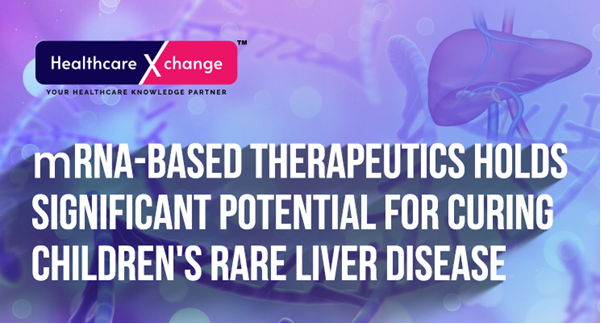
mRNA-Based Therapeutics Holds Significant Potential For Curing Children’s Rare Liver Disease
- Imaging and diagnostics
- October 15, 2024
Highlights
-
A team of scientists have created an effected therapy for a rare liver disease, demonstrating the technology’s potential therapeutic use for humans
-
The therapy explores mRNA’s potential in treating genetic diseases previously considered incurable
A study published in Science Translational Medicine has found that messenger RNA (mRNA) can be used to treat a rare genetic liver disease. The inherited metabolic disorder, argininosuccinic aciduria, occurs in one in 100,000 newborns and affects the liver’s detoxification process due to a lack of the enzyme argininosuccinate lyase. This deficiency can lead to high ammonia levels in the blood and an imbalance in glutathione regulation.
Researchers from UCL Great Ormond Street Institute of Child Health and Moderna plan to test the therapy in humans over the coming years. They are also investigating mRNA therapies for propionic and methylmalonic acidemias in global clinical trials sponsored by Moderna. Dr. Julien Baruteau, Co-Lead Principal Investigator at UCL, noted the significant potential of mRNA to treat rare diseases, drawing on its success in COVID-19 vaccine development.
The researchers used mRNA, a molecule that instructs cells to produce proteins, as an alternative to traditional gene therapy. The procedure involves injecting mRNA intravenously, targeting liver cells with lipid microdroplets. In tests on 31 mice, treatment with mRNA at birth corrected the disease’s lethal effects for three months. Additionally, six out of seven older mice receiving rescue therapy survived, while all untreated mice died within two weeks. Organs treated with mRNA were similar to those in control mice.
Rare diseases affect around 300 million people worldwide, but only 5% have approved therapies. Most treatments involve gene therapy or modified viruses, which can cause severe adverse effects. Dr. Baruteau emphasised the potential of mRNA therapy for incurable genetic liver diseases and plans to expand its use to other hereditary diseases in children.




